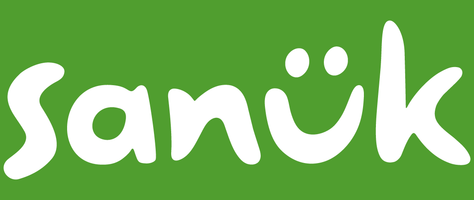
Our Materials
We strive to incorporate more responsibly certified and sustainable materials in our products (including preferred, recycled, renewable, regenerate, and natural materials). When we can clearly understand what our products are made of and where they come from, it allows us to make better sourcing decisions, guiding our brands toward more sustainable material selections. Read below to learn about some of the responsible-preferred materials Sanuk utilizes in its portfolio.
RESPONSIBLE COTTON
We are committed to seeking more sustainable alternatives for key materials. We understand the importance of sourcing cotton produced in a way that is better for the people who produce it and the environment in which it grows. By increasing our use of BCI raw cotton fiber, we’ve already saved 59 million gallons of water, 147,000 MJ of energy, and 38,900 lbs. of CO2. Sanuk promises to source 100% sustainable cotton by 2025.

147,000
MJ OF ENERGY SAVED
147,000
MJ OF ENERGY SAVED

59 MILLION
GALLONS OF WATER SAVED
59 MILLION
GALLONS OF WATER SAVED

38,900 LBS
OF CO2 EQ SEQUESTERED
38,900 LBS
OF CO2 EQ SEQUESTERED
Hemp
This cool cousin of cannabis is very gentle on Mother Earth. Hemp is an incredibly sustainable and eco-friendly fiber. Using hemp instead of cotton lets farmers save water, naturally replenish the soil, replant multiple times per year and harvest more often—all without the need for pesticides or herbicides. We love using hemp in our products, and, by increasing our hemp raw fiber usage, we’ve already saved 137 million gallons of water and 396,000 MJ of energy, while reducing our CO2 eq. emissions by 82,000 lbs.

82,000 LBS
OF CO2 EQ SAVED, AND SEQUESTERED OVER 30,000 LBS
82,000 LBS
OF CO2 EQ SAVED, AND SEQUESTERED OVER 30,000 LBS

396,000
MJ OF ENERGY SAVED
396,000
MJ OF ENERGY SAVED
Vegan Product
We appreciate each and every one of our customers and recognize that, just like all of us at Sanuk, different folks represent various beliefs and have different wants or needs. A healthy number of our consumers feel good wearing vegan footwear that best fits their active lifestyles, and we are proud to offer a very extensive collection of vegan-friendly styles. Our vegan shoes, sandals, Sidewalk Surfers and boots are carefully made with absolutely no animal products or byproducts.
RECYCLED MATERIALS
We love using reincarnated rubbish in the form of quality, eco-minded materials—like rPET REPREVE®, recycled polyester, recycled cotton, recycled EVA and other foams, plus other upcycled stuff—and are always exploring innovative ways to source even more.
NATURAL MATERIALS
Nature provides a mind-bending bounty of wholesome materials out there, so we’re always striving to include naturally occurring substances such as hemp, cotton, linen, jute, straw, cork, and responsibly sourced leather in our footwear.
RESPONSIBLE LEATHER
We don’t use leather often, but when we do, it’s responsibly sourced from Leather Working Group tanneries. LWG aligns environmental priorities, brings visibility to best practices, and guides continual industry improvement. When using animal product, we are committed to doing so responsibly by only working with partners who abide by our Ethical Sourcing and Animal Welfare Policy.
PACKAGING LIFECYCLE ASSESSMENT (LCA)
We look at sustainability holistically: from product design to product materials to packaging. We not only design products to be more sustainable and strive to use more sustainable materials in our products, we also constantly seek out new ways to improve product packaging (since it is the first part of the product to be disposed of by the consumer). For the past three years, we’ve critically looked into our packaging environmental impact.
We are proud to have conducted a packaging materials LCA, and, through that exercise, were able to set some lofty but highly attainable goals to further our packaging environmental savings. From increasing our use of Forest Stewardship Council (FSC) paper to using less plastic and less paper, we are doing our part to reduce the environmental impact of our packaging materials. Our efforts will have saved approximately 64,881 trees.
| Sanuk (units) | Total Savings to Date Since Baseline |
|---|---|
| Reduced Carbon Footprint (lbs of CO2) | 6,013,813.90 |
| Reduced Water Usage (gallons of Water) | 34,455,935.59 |
| Reduced Energy Usage (gallons of Petrol) | 396,931.05 |
| Reduced Dunnage (lbs of Packaging) | 1,109,697.48 |
Sanuk Fiber Usage Breakdown

SANUK COTTON TEXTILE FIBER USAGE BREAKDOWN








